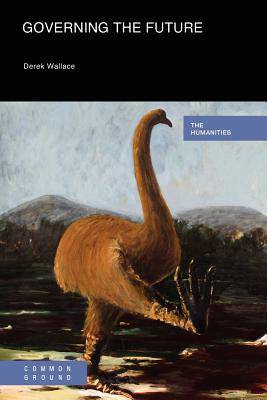
Wil je zeker zijn dat je cadeautjes op tijd onder de kerstboom liggen? Onze winkels ontvangen jou met open armen. Nu met extra openingsuren op zondag!
- Afhalen na 1 uur in een winkel met voorraad
- Gratis thuislevering in België vanaf € 30
- Ruim aanbod met 7 miljoen producten
Wil je zeker zijn dat je cadeautjes op tijd onder de kerstboom liggen? Onze winkels ontvangen jou met open armen. Nu met extra openingsuren op zondag!
- Afhalen na 1 uur in een winkel met voorraad
- Gratis thuislevering in België vanaf € 30
- Ruim aanbod met 7 miljoen producten
Zoeken
Omschrijving
Since the Second World War, state administrations of all stripes have sought social stability by privileging the economic - first, through central planning, grounded in confidence in the achievability of human mastery over space and change; then through neo-liberalism, driven by an a-temporal faith in the collective benefits of maximizing individual choice. Both emphases have been equally hubristic, and devastating for the planet. This book inquires into the influencing factors as well as the practical realizations of this project at the level of national state organization and decision-making, with particular reference to Western liberal democracies, using New Zealand as a case study. In its latter stages, the book moves towards an exploration of the prospects and opportunities for a more balanced and realistic approach to managing the future - one that takes into account the demands of sustainable well-being for all. The experience of the last thirty years - characterized by a retreat from central planning followed by a partial return - and the fuller understanding of the limits of government action made possible by that experience make it an appropriate moment for a study of this kind.
Specificaties
Betrokkenen
- Auteur(s):
- Uitgeverij:
Inhoud
- Aantal bladzijden:
- 180
- Taal:
- Engels
- Reeks:
Eigenschappen
- Productcode (EAN):
- 9781863358583
- Verschijningsdatum:
- 30/08/2011
- Uitvoering:
- Paperback
- Formaat:
- Trade paperback (VS)
- Afmetingen:
- 156 mm x 234 mm
- Gewicht:
- 258 g

Alleen bij Standaard Boekhandel
+ 111 punten op je klantenkaart van Standaard Boekhandel
Beoordelingen
We publiceren alleen reviews die voldoen aan de voorwaarden voor reviews. Bekijk onze voorwaarden voor reviews.











